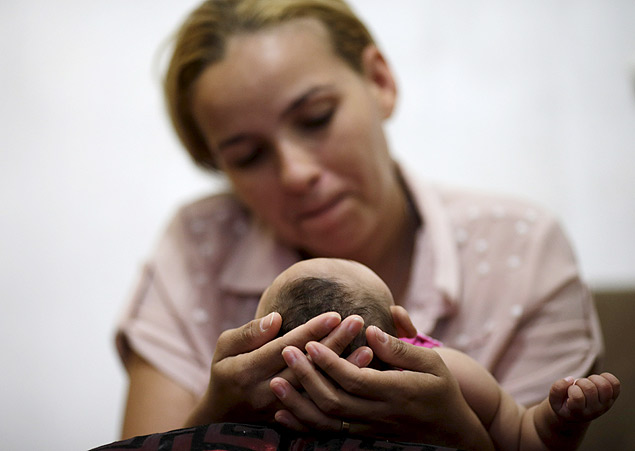Latest Photo Galleries
Brazilian Markets
12h03 Bovespa |
-0,14% | 129.028 |
16h43 Gold |
0,00% | 117 |
12h17 Dollar |
+0,39% | 5,0873 |
16h30 Euro |
+0,49% | 2,65250 |
ADVERTISING
Zika Discover Caused Grief Among Brazilian Researchers
08/29/2016 - 10h43
Advertising
CLÁUDIA COLLUCCI
FROM SÃO PAULO
Scientific discoveries are never solitary incidents. They are part of a bigger puzzle with several researchers working simultaneously.
That is a recurrent dynamic in the history of science and the discovery of the Zika virus in Brazil was not any different. There was great solidarity among the Brazilian researchers, but disagreements prevailed.
Or so that is what anthropologist Debora Diniz, Bioethics professor at the University of Brasília, reveals in her book "Zika, from the northeastern backcountry to global threat" (from Civilização Brasileira publishing), which will be launched on Wednesday (31), in Brasília.
The author takes the reader back to December 2014, when the mysterious disease started making its rounds in the northeastern backcountry.
Among tropical medicine and infectology bibles, ZIka went unnoticed. Until March 13, when Kléber Luz, a physician from the Brazilian city of Natal, sent a note to a colleague:"Look at the description for the Zika virus, I think that is it."
While the group awaited the results of more specific tests, made in Fiocruz do Paraná, on April 29th, other researchers, from Bahia, announced the discovery of the virus in a press interview in Salvador.
There was also grief in the next chapter of the epidemic, the first cases of microcephaly.
Seeking answers for patients, Dr. Adriana Melo, with the permission of pregnant women Géssica and Conceição, decided to extract amniotic fluid to investigate the presence of Zika.
The samples were sent to Fiocruz in Rio de Janeiro for analysis. On November 16th, it was confirmed that Zika had been identified in the amniotic fluid. That same night, Adriana hinted at the study on a TV show in the Brazilian state of Paraíba. On November 18th, Fiocruz made an official statement, but did not make any mention of the doctor.
For Debora, there's a Brazilian way to making science and announcing discoveries.
"The results were first released to the press before being published by scientific communications. Bedside doctors and northeastern scientists are the ones who braved the epidemic, they felt an urgency to speak up, to be recognized, but wanted to protect themselves."
Translated by SUGHEY RAMIREZ
Read the article in the original language
| Ueslei Marcelino/Reuters | ||
 |
||
| Gleyse Kelly holds the head of her daughter Maria Geovana, who has microcephaly, in Recife, Brazil |



